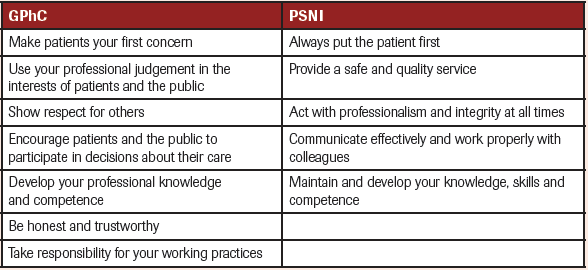Handling complaints well gives you an opportunity to turn a poor experience into a good one, potentially maintaining loyalty. Every pharmacy should have a standard operating procedure (SOP) for dealing with complaints. In addition, complaints about dispensing errors should be recorded appropriately and the professional guidance (see box) and NHS complaints procedure followed as appropriate. Pharmacists must follow principles as defined by the GPhC/PSNI. Following the principles below should help to keep patient complaints to a minimum, and give you a framework for handling them. When responding to a complaint, think about the situation from the patient’s point of view – they will be looking to be heard, to receive a sincere apology and have some reassurance that it won’t happen again.

Respond quickly
Don’t leave the complainant waiting around. If the patient wants to speak to the pharmacist, who is unavailable, this may aggravate the issue. If the right person can’t be seen straightaway, let them know why they are waiting and find out if they can be given any assistance while waiting.
Stay calm, listen and empathise
Complaints can be very emotive. Patients will display a range of emotions, so acknowledging how they feel about the issue is important. Phrases such as “I can understand why you are upset” may be useful. It might be appropriate to discuss the issue in the privacy of the consultation room.
Listen to what the patient has to say without talking over them, interrupting or making assumptions about what they are unhappy about. Without understanding the issue fully, you won’t be able to resolve it properly. This gives patients an opportunity to express their disappointment. Maintain eye contact and keep your body language open as they talk. It may be appropriate to take notes as you are discussing the issue to make sure you have captured everything.
Respond without getting angry, defensive or argumentative. Stay calm and professional, as this will help to calm the situation down. Avoid diverting the blame elsewhere. The customer is not necessarily interested in your staffing issues or who made the error; they want their complaint resolved. The patient may not be making a complaint about you directly, but you are representing the pharmacy, so don’t take it personally. Apologise with sincerity. It may not have been your fault, but you can still make the apology as the pharmacy representative. For example, you could say, “I’m sorry that you have had to come back to resolve this issue.”
When apologising, take care not to admit liability. It may be better to say, for example, “I am sorry that cream wasn’t suitable” rather than “I am sorry that cream has made your rash worse”.
